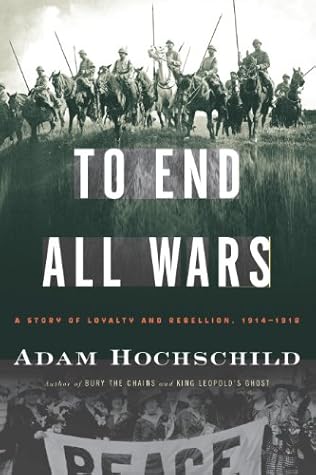More on this book
Community
Kindle Notes & Highlights
Read between
June 29 - June 30, 2016
But from 1914 to 1918, by contrast, in all the participating countries the war was astonishingly lethal for their ruling classes.
(When a final tally was made after the war, it would show that 27,927 Boers—almost all of them women and children—had died in the camps, more than twice the number of Boer soldiers killed in combat.)
For him, as for many other delegates, socialism was less a matter of workers owning the means of production—although he firmly believed in that—than a moral crusade for a society that put workers before profits, public good before private wealth, and, above all, peace before war.
Appalled by the prospect of falling under the sway of the island’s impoverished Catholic majority, activists in wealthier, largely Protestant northern Ireland vowed to form a rebel provisional government of their own. Quietly supported by Protestant landowners in the rest of Ireland, they set up a militia for which they imported 30,000 rifles. In response, Irish nationalists in Dublin formed their own paramilitary force and also began arming. Delighted by this potential warfare in England’s backyard, the Germans secretly sold weapons to both sides.
considering Irish Catholics “the Orientals of the West.”
so focused on the looming conflagration in Ireland that they paid little attention to the news, at the end of June, that Archduke Franz Ferdinand of Austria-Hungary and his wife, Sophie, had been killed by an assassin’s bullets in the provincial city of Sarajevo.
an excuse to attack Serbia.
What made gas warfare provoke such rage, the historian Trevor Wilson suggests, was something else. For all of recorded history, soldiers had believed that victory went to the manly, the fearless, and the daring. Now, with deadly gas brought to you not from the hand of an enemy you could see and slay, but by the very wind, all bravery seemed useless.
Among the more important goods was precision optical equipment—aerial reconnaissance camera lenses, periscopes, rangefinders, telescopic sights for sniper rifles, and binoculars.
For them to question the generals’ judgment would have meant, of course, asking if their fellow soldiers had died in vain. From the need to avoid such questions are so many myths about wars born.
The year 1915 had begun with the Germans occupying some 19,500 square miles of French and Belgian territory. At its end, Allied troops had recaptured exactly eight of those square miles, the British alone suffering more than a quarter-million casualties in the process.
“Once you have lain in her arms,” another writer and Western Front veteran, Guy Chapman, said of war, “you can admit no other mistress. You may loathe, you may execrate, but you cannot deny her. . . . No wine gives fiercer intoxication, no drug more vivid exaltation. . . . Even those who hate her most are prisoners to her spell. They rise from her embraces, pillaged, soiled, it may be ashamed; but they are still hers.”
The army’s stringent disciplinary code took no account of what was then called shell shock. Simply put, after even the most obedient soldier had had enough shells rain down on him, without any means of fighting back, he often lost all self-control. This could take many forms: panic, flight, inability to sleep or—as with Joseph Stones—to walk.
The world’s balance of power would never be the same again.
Ominously, making the fraudulent claim that Jews were shirking military duty, right-wing forces demanded and won a special census of Jews in the army. Anti-Semitic books, pamphlets, and oratory proliferated. By 1918, the head of the Pan-German League was calling for a “ruthless struggle against Jews.”
Even by the most conservative of the official tabulations—one made by the U.S. War Department six years later—more than 8.5 million soldiers were killed on all fronts. Most other counts are higher, usually by about a million.
The public ignominy of being dictated to by the Allies rankled deeply across the political spectrum, eroding support—just as Ludendorff and von Hindenburg had planned—for the moderate, civilian regime that was forced to accept the treaty, and providing essential grist for the rise of Hitler.
Plenty of other Western leftists, in eager search for the embodiment, at last, of what Pankhurst once called a “Golden Age” of peace and plenty for all, also found paradise in the Soviet Union.


